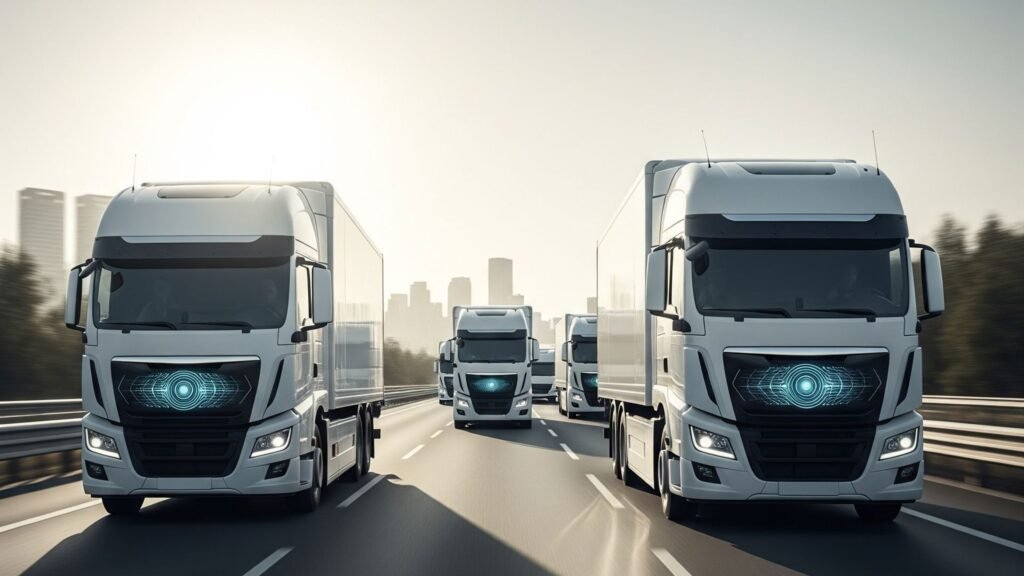Exploring Trucking Industry Trends: What to Expect in the Future
I’ve been watching the trucking industry evolve for years—and let me tell you, it’s no longer just about diesel engines and long-haul routes. What once felt like a traditional, slow-moving sector is now riding the waves of technology, automation, and sustainability like never before.
In this post, I want to walk you through the key trends shaping the future of trucking, based on what I’ve seen, read, and experienced working with logistics clients and following this fascinating industry closely.
1. Telematics and Fleet Digitization
I remember when fleet management was done with paper logs, Excel sheets, and a whole lot of guesswork. Not anymore.
Modern fleets are becoming data-driven, using GPS tracking, telematics, and IoT sensors to monitor:
- Vehicle health
- Fuel consumption
- Driver behavior
- Route efficiency
This not only reduces downtime and costs but also gives managers real-time visibility into operations. It’s like flying with radar instead of going blind.
2. Electrification of Trucks
When I first heard about electric trucks, I was skeptical. Would they have enough range? What about charging?
But now, with companies like Tesla, Volvo, and Daimler rolling out electric rigs—and countries pushing for emissions targets—EVs are clearly part of the trucking future.
Expect to see:
- Local and regional electric deliveries
- Government subsidies for clean fleets
- Charging infrastructure becoming more common along major routes
It’s not “if” anymore—it’s how fast.
3. Autonomous Trucking
Autonomous trucks used to sound like science fiction. Now, I regularly come across pilot programs where driverless trucks are already hauling freight (with supervision, for now).
Companies like TuSimple, Aurora, and Waymo are testing these vehicles for highway driving.
We’re not at full automation yet, but we might soon see:
- Trucks driving long highway segments autonomously
- Human drivers managing city navigation and loading
- Reduced fatigue and fewer accidents
And yes, it’ll change jobs—but I believe it’ll create new ones too, in tech, fleet supervision, and remote operations.
4. E-commerce and Last-Mile Logistics
E-commerce is booming, and that puts massive pressure on trucking and delivery systems. I’ve seen the demand for faster, more flexible delivery options skyrocket.
In response, companies are:
- Creating micro-fulfillment centers closer to cities
- Using smaller vehicles for last-mile deliveries
- Investing in route optimization software to save time and fuel
The challenge now is speed without sacrificing profitability.
5. Sustainability and Green Logistics
Environmental concerns aren’t just for policymakers anymore. Logistics companies are under pressure—from clients and governments—to cut emissions and show responsibility.
We’re seeing:
- Carbon tracking dashboards built into fleet software
- Alternative fuels like hydrogen and biodiesel being tested
- Eco-driving training for drivers to reduce emissions
In the next decade, sustainability could be a competitive advantage, not just a compliance checkbox.
6. AI and Predictive Analytics
One of the most exciting shifts I’ve noticed? The use of AI to predict and prevent problems.
With the help of machine learning, companies can:
- Forecast demand and plan deliveries accordingly
- Predict maintenance issues before a breakdown happens
- Optimize fuel usage and route planning
And the best part? These systems get smarter the more they’re used.
7. Driver Shortages and Workforce Changes
It’s no secret: the trucking industry has been dealing with driver shortages for years. The job is tough, long hours are common, and younger generations aren’t as eager to jump behind the wheel.
To stay ahead, companies are:
- Improving driver benefits and work conditions
- Investing in driver-assist technologies to reduce fatigue
- Offering training for tech skills (yes, today’s drivers use tablets, apps, and more)
There’s also a growing shift toward upskilling logistics workers to handle software and AI-driven tools.
Final Thoughts: The Road Ahead
The trucking industry of tomorrow will be faster, smarter, cleaner, and more connected. Whether you’re a fleet owner, a logistics professional, or just curious about what’s happening on our highways, these changes are exciting—and they’re already underway.
The trucks may still look the same from the outside, but under the hood (literally and figuratively), they’re transforming fast.
And if you’re in the industry? Now’s the time to adapt, innovate, and buckle up for the ride.




